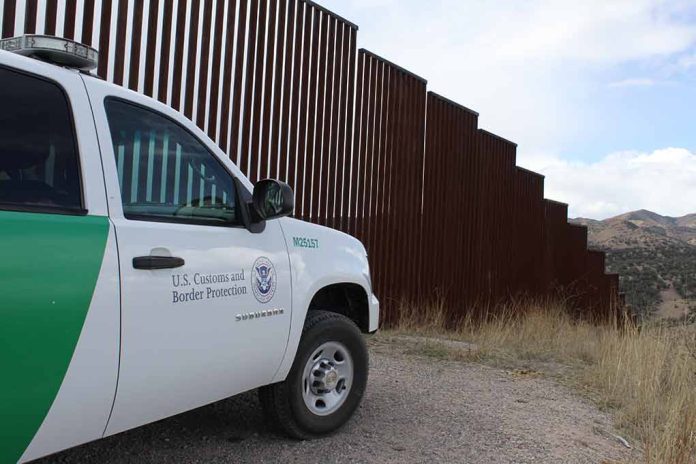
Louisiana is now legally empowered to arrest illegal immigrants as the state takes border security into its own hands, setting the stage for what could be America’s most aggressive state-level immigration enforcement to date.
Key Takeaways
- Louisiana’s Republican-controlled legislature has passed a series of bills allowing state and local law enforcement to arrest and detain individuals who entered the US illegally.
- The legislation creates state crimes for “illegal entry or re-entry” with penalties including prison time and fines.
- Public officials who obstruct federal immigration enforcement could face felony charges and up to 10 years in prison.
- State agencies must now verify citizenship status for services, track costs associated with illegal immigrants, and refer those with unsatisfactory status to ICE.
- Louisiana joins other Republican-led states like Texas and Florida in expanding state authority over immigration enforcement.
Taking Immigration Enforcement Into State Hands
Louisiana has joined the growing number of Republican-led states taking immigration enforcement into their own hands. The state’s legislature recently approved a package of bills that dramatically expand the state’s role in immigration enforcement, creating new state crimes and penalties for illegal entry. The measures authorize state and local law enforcement to arrest individuals who entered the country illegally, regardless of how long they’ve been in the United States, and allow the governor to form interstate compacts with Texas and other states for coordinated border security efforts.
“I think all of us in here know that we have a crisis at the border and our federal government is not doing anything to help the states,” said GOP state senator Valarie Hodges, who championed the legislation, arguing that states have the right to defend our nation when the federal government fails to act.
Requiring Accountability From Public Officials
One of the most controversial aspects of Louisiana’s new immigration legislation is Senate Bill 15, which explicitly prohibits obstruction of federal immigration enforcement by both private individuals and public officials. The law expands the crime of malfeasance in office and obstruction of justice specifically related to immigration enforcement. Public officials who violate these provisions could face serious consequences, including felony charges carrying penalties of up to 10 years in prison – making Louisiana the first state to impose such severe state criminal penalties for interfering with immigration enforcement.
“This is one of those bills that says it’s against the law not to enforce the law,” explained Republican state Sen. Jay Morris, the bill’s author, defended the need for such measures to ensure cooperation with federal authorities.
The legislation aims to eliminate so-called “sanctuary” policies where local officials might refuse to cooperate with federal immigration authorities. Louisiana now joins other states in penalizing local officials who do not fully cooperate with Immigration and Customs Enforcement (ICE), reflecting a growing trend among conservative states to ensure alignment between state and federal immigration enforcement efforts.
Tracking Costs and Services
Another key component of Louisiana’s immigration enforcement package is Senate Bill 100, which mandates state agencies to track the legal status of individuals using public services. Agencies must now report the number of “illegal aliens” or “unaccompanied alien children” they serve and calculate the associated costs. These reports will be submitted annually to the governor, attorney general, and Legislature, creating unprecedented transparency about state resources being allocated to those in the country illegally.
The legislation goes further by requiring agencies to refer applicants with unsatisfactory immigration status directly to ICE and allows for withholding funding from non-compliant agencies. This approach aims to ensure that state resources are properly accounted for and that federal immigration authorities are made aware of illegal immigrants seeking state services. Louisiana already has nine immigration detention centers holding nearly 7,000 people, highlighting the state’s significant role in federal immigration enforcement infrastructure.
Criticisms and Constitutional Concerns
Critics of Louisiana’s new immigration laws have raised serious concerns about their constitutionality and potential impacts on civil liberties. Opponents argue that immigration enforcement is fundamentally a federal responsibility and that state-level criminalization overreaches state authority. They warn the legislation could lead to racial profiling and create a hostile environment for all immigrants, regardless of legal status, as well as for citizens who may be perceived as foreign-born.
“It’s going to create a backlog in our courts, it’s going to drain state resources, and it’s not going to actually reduce crime or make Louisiana any safer,” warned Huey Fischer García, highlighting concerns about the practical implementation of these measures.
Civil rights advocates have expressed particular concern that the bills criminalizing obstruction of immigration enforcement could potentially target those who provide humanitarian assistance to immigrants, including religious leaders, attorneys, and advocates. Tia Fields, a community advocate, warned the legislation would create a chilling effect on those working with immigrant communities. Even some Republican lawmakers acknowledged these concerns, with state Sen. Blake Miguez called such interpretations a bit of a stretch while still supporting the overall enforcement approach.
A Growing State-Led Movement
Louisiana’s aggressive immigration legislation is part of a broader movement among Republican-led states to take immigration enforcement into their own hands. Texas has led this charge with its controversial Operation Lone Star, while Florida, Iowa, and other states have passed similar measures expanding state involvement in immigration enforcement. This growing trend reflects intense frustration with the Biden administration’s border policies and the record levels of illegal immigration under President Biden’s watch.
With the new measures in place, Louisiana has positioned itself at the forefront of state-level immigration enforcement, creating a model that other conservative states may follow. As the nation continues to grapple with the ongoing border crisis, state-led solutions like Louisiana’s represent a significant shift in how immigration enforcement is approached across the country, with states increasingly unwilling to wait for federal action on this critical issue.













